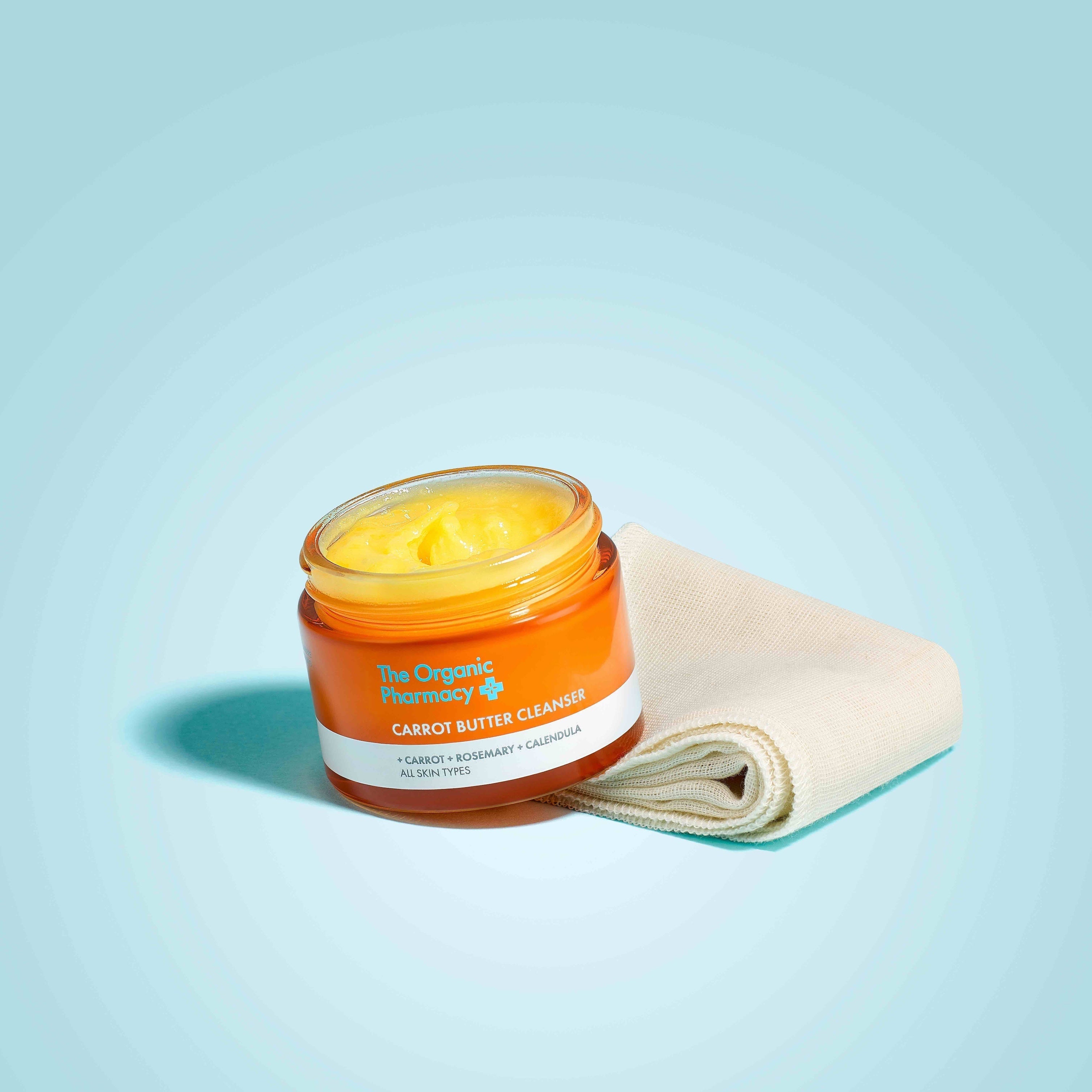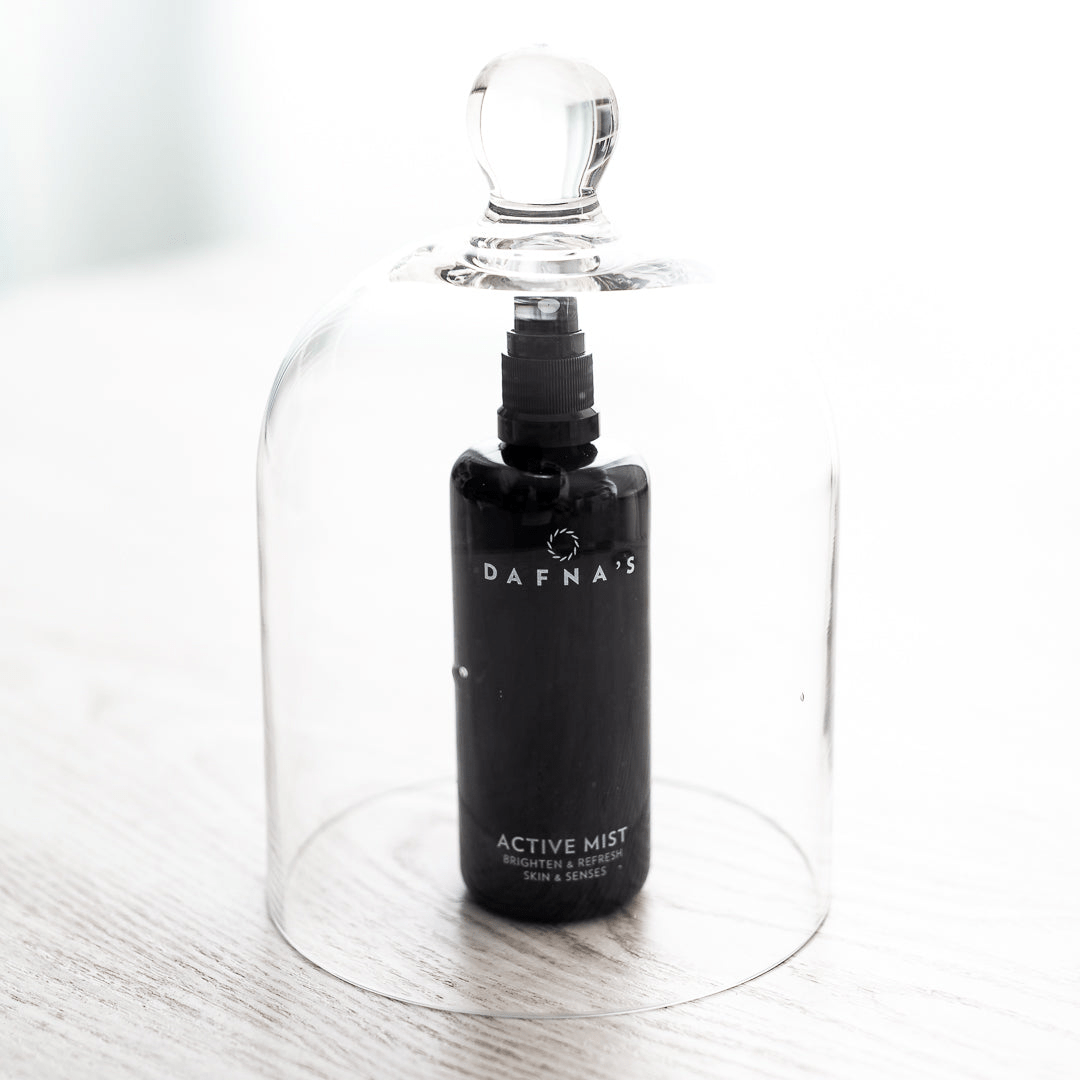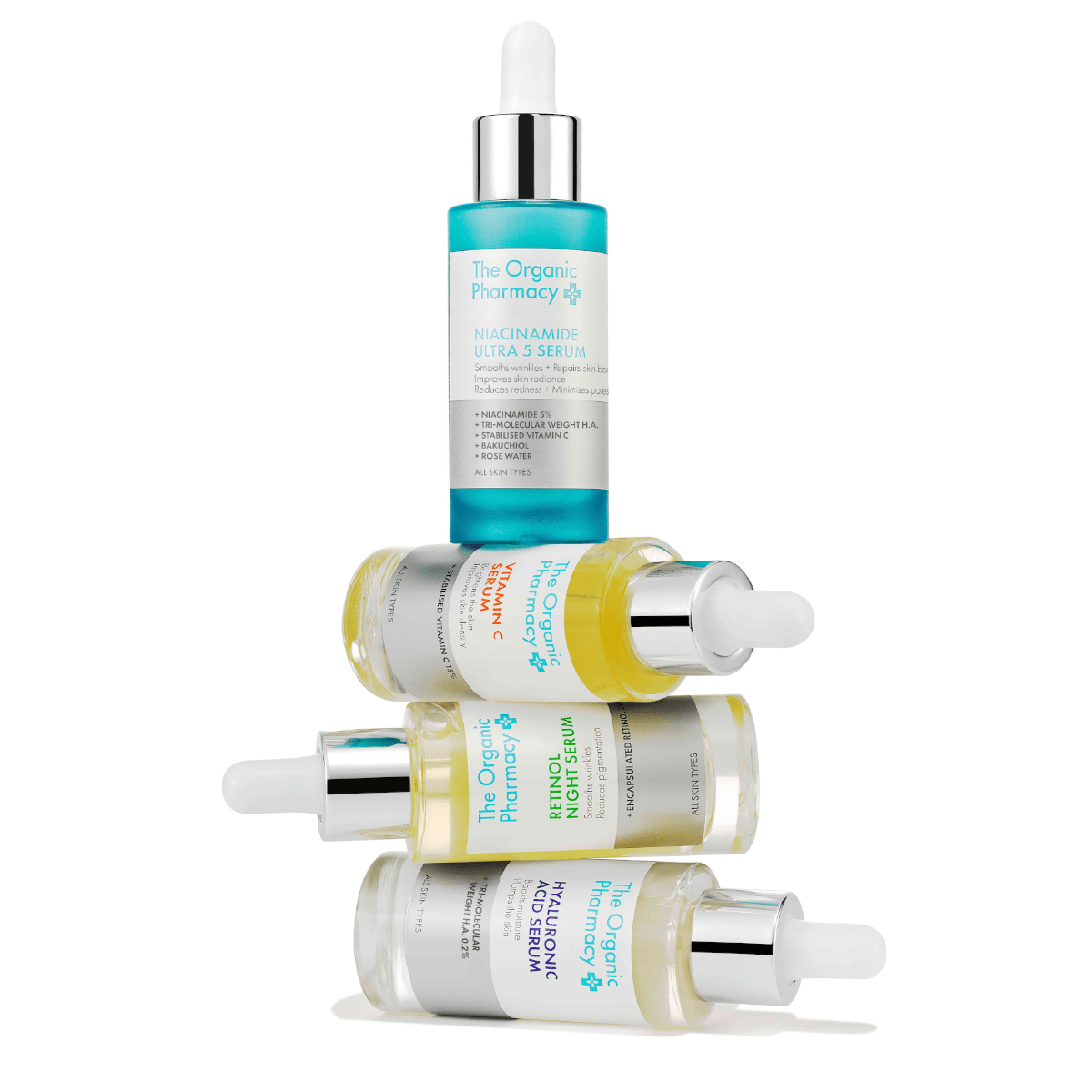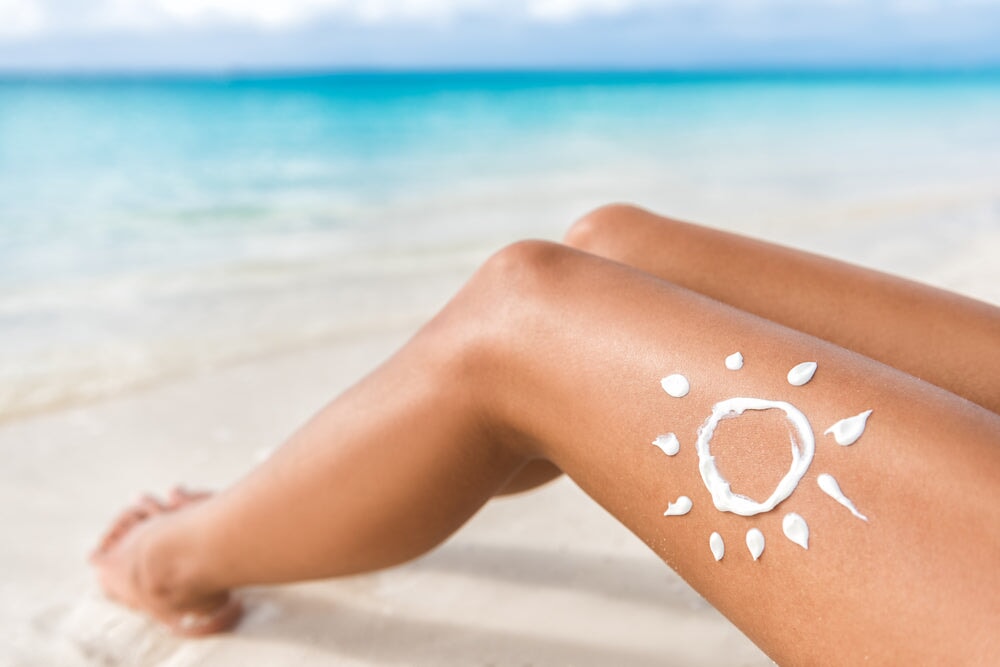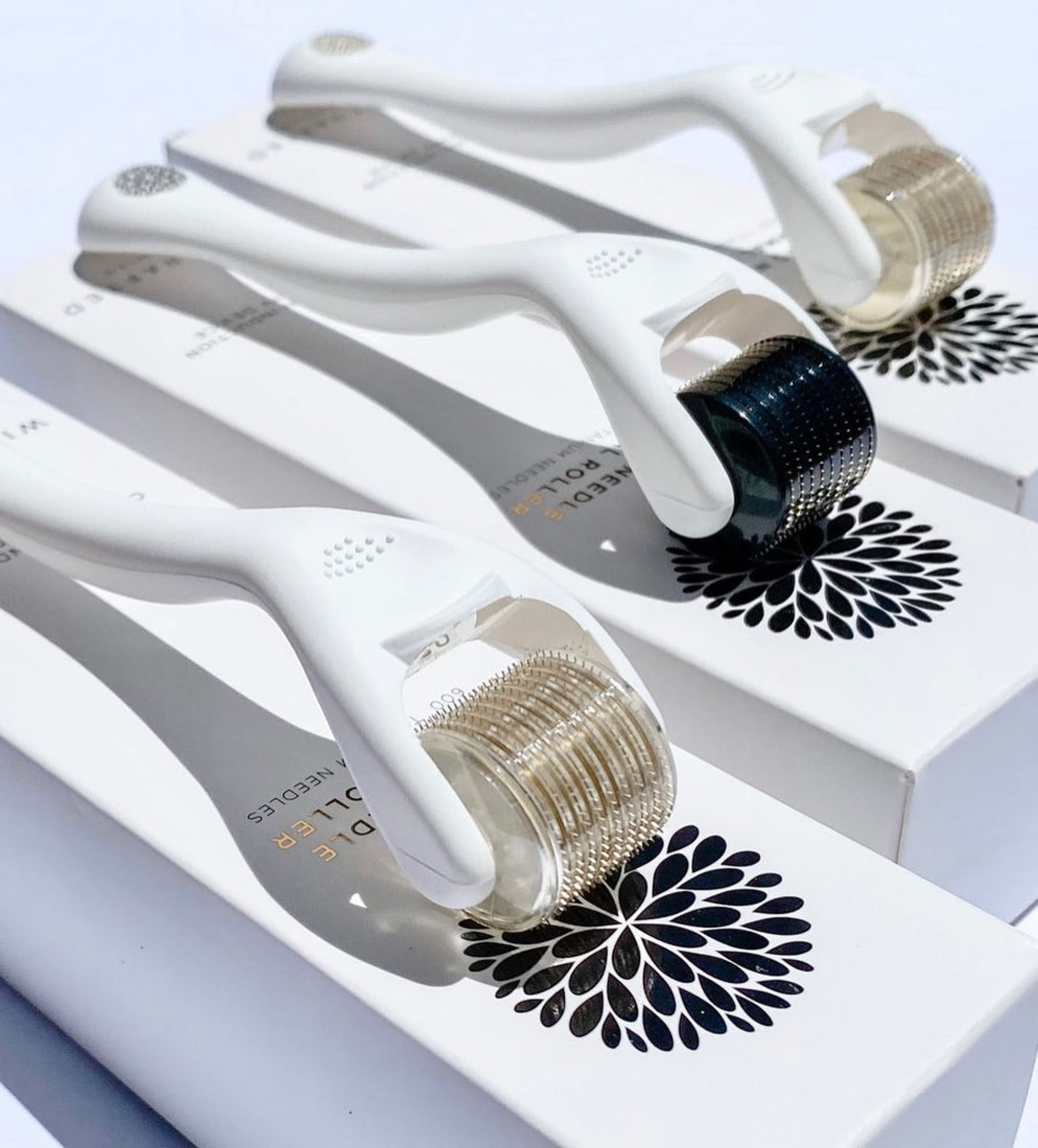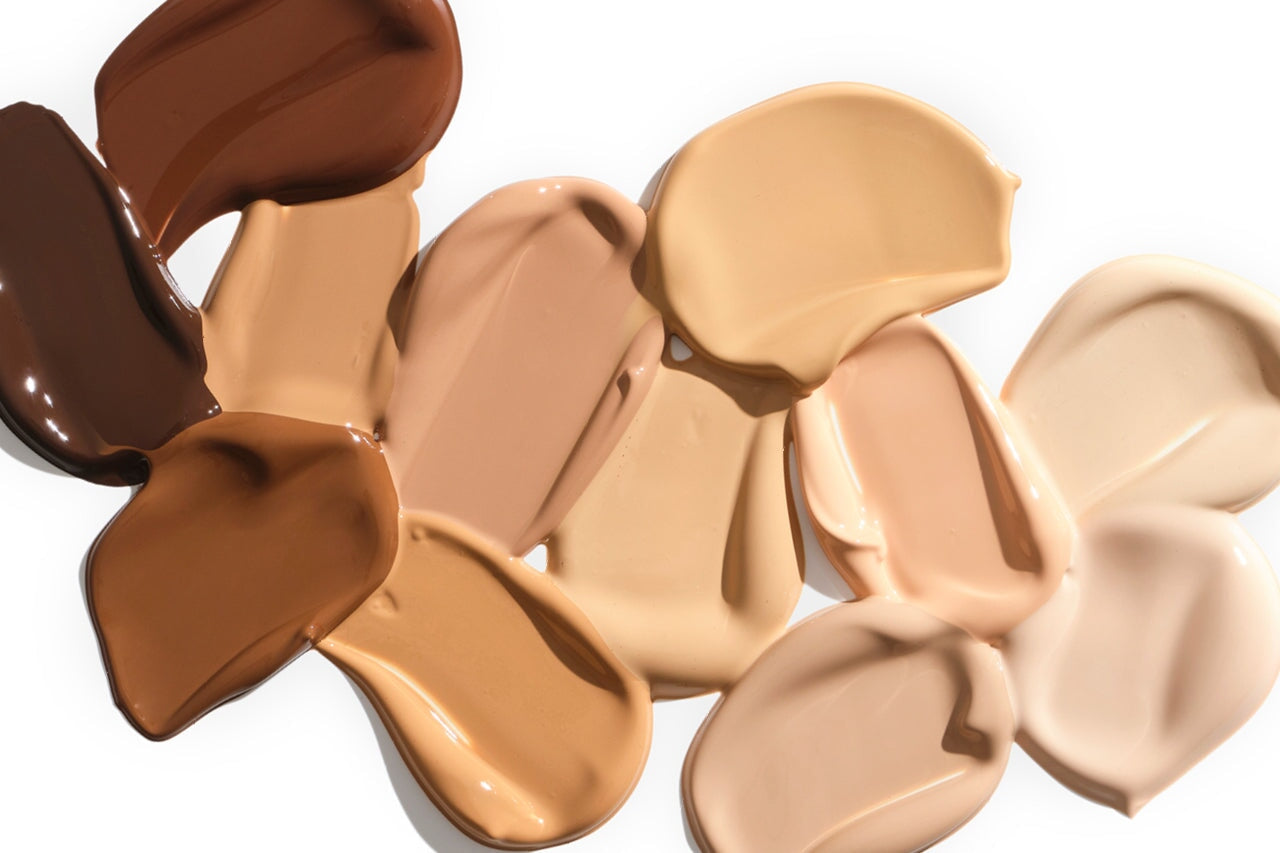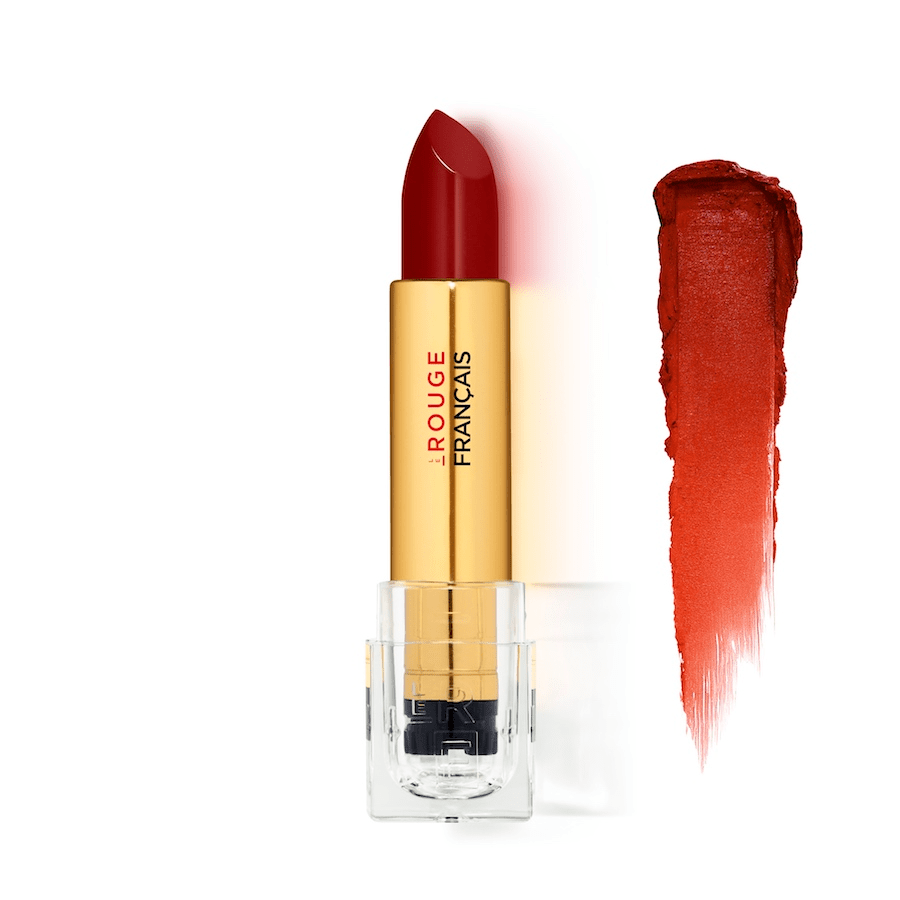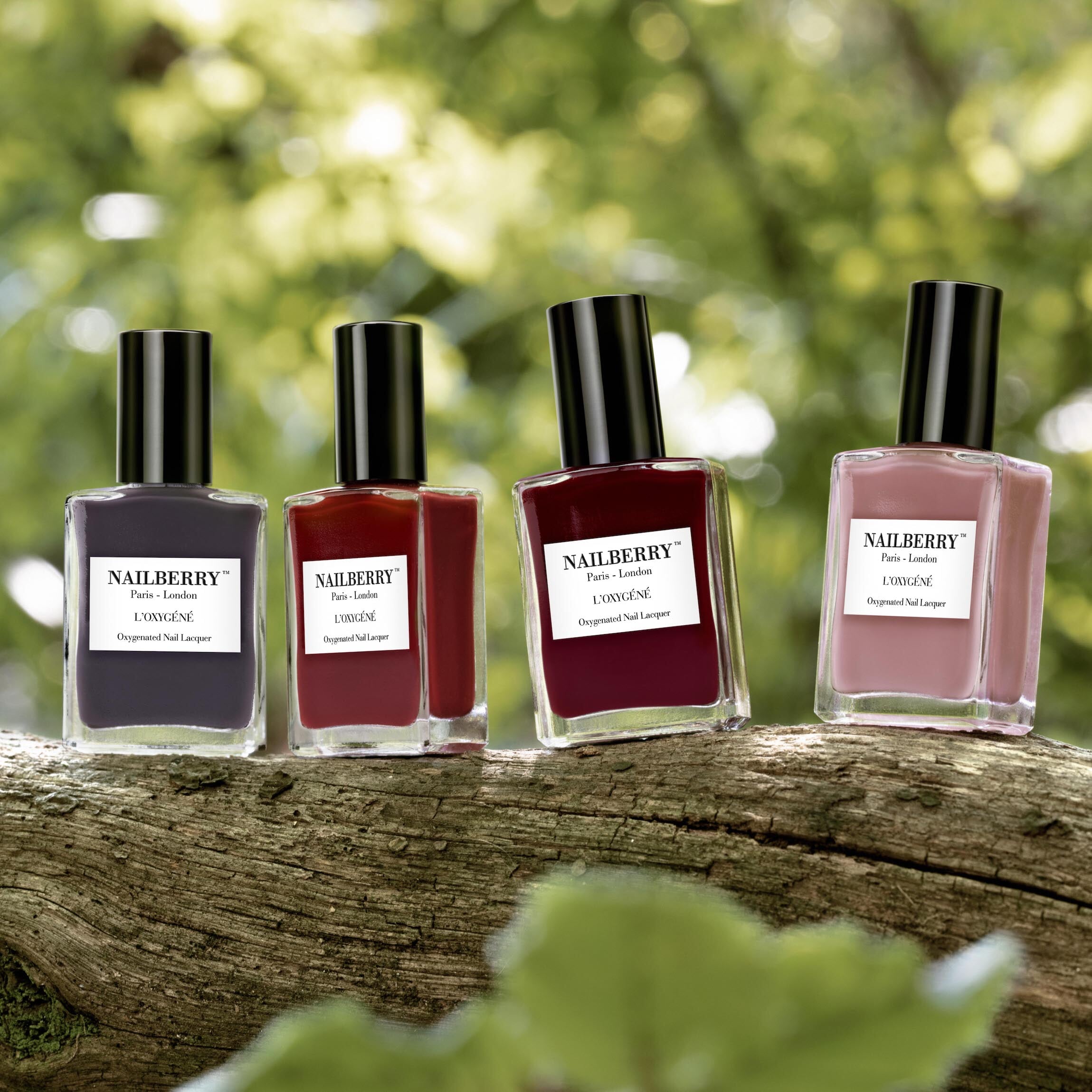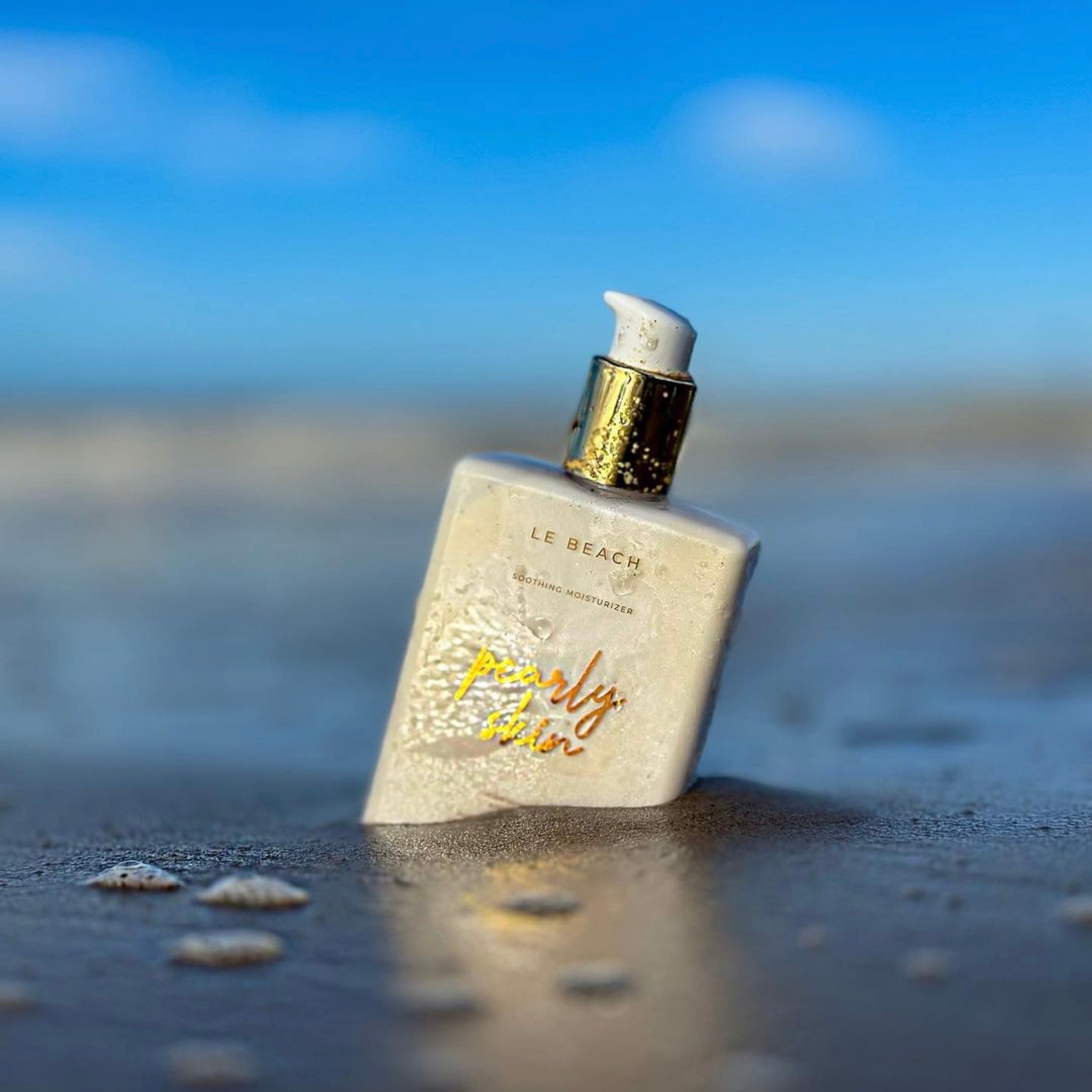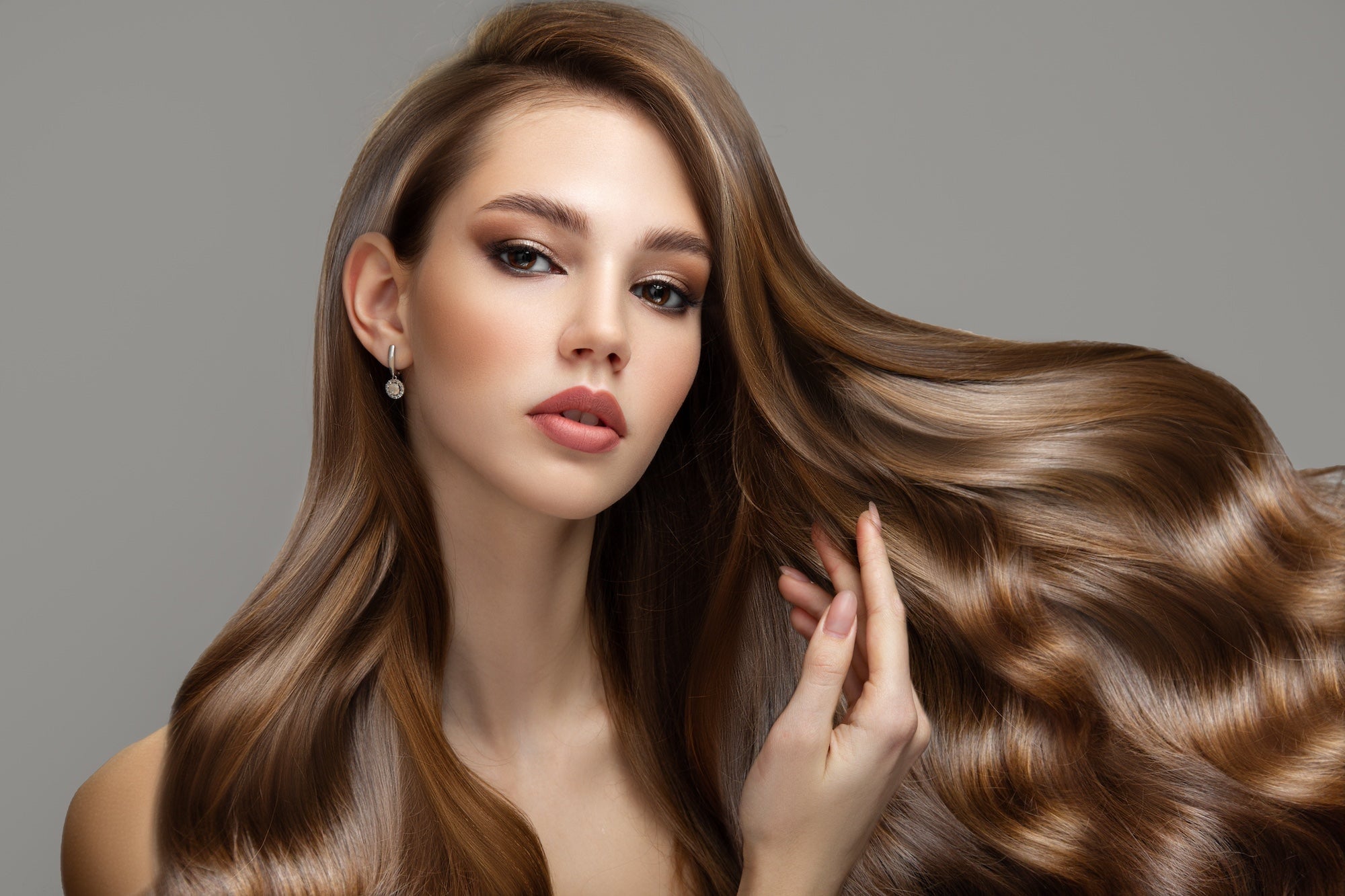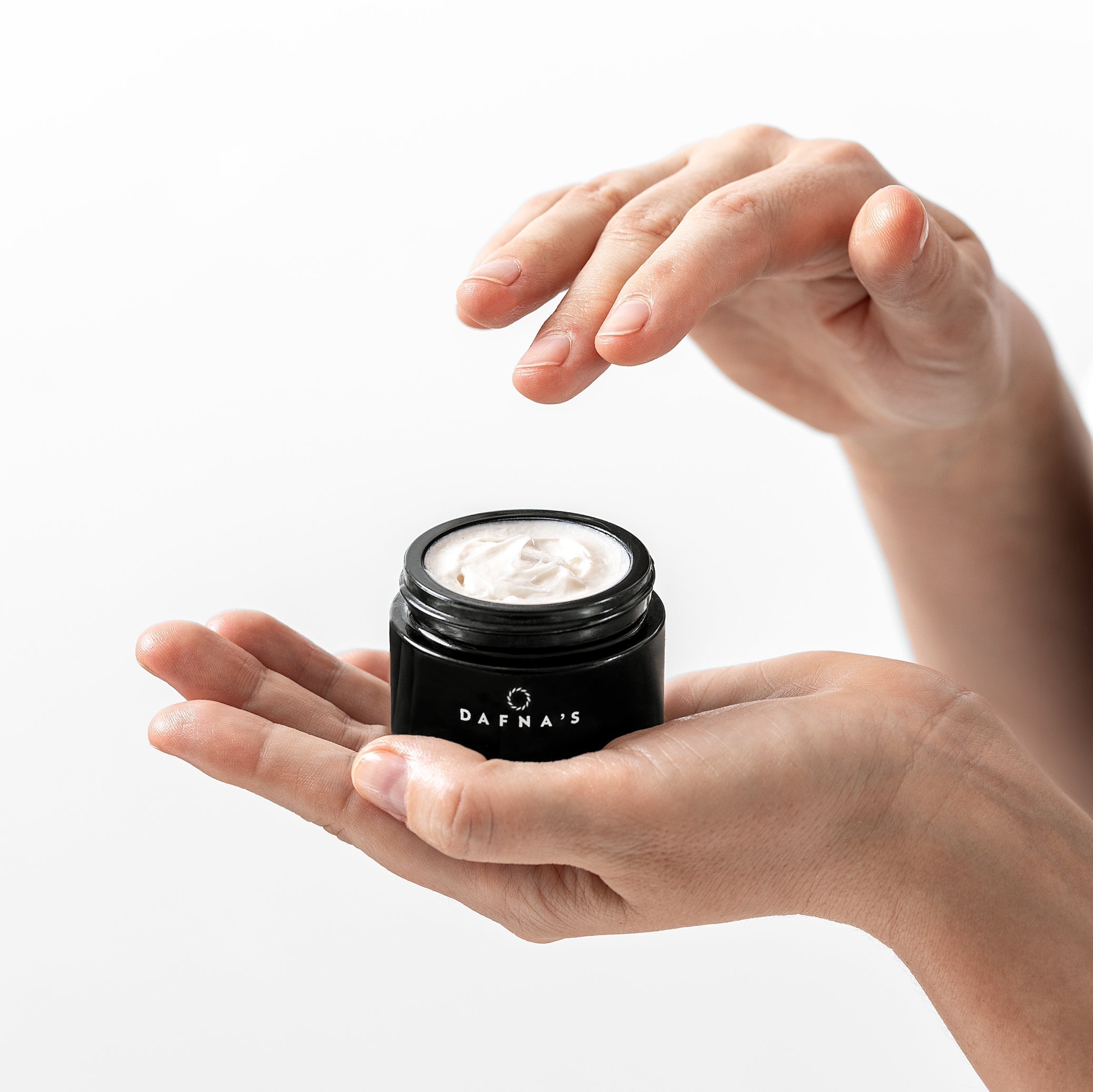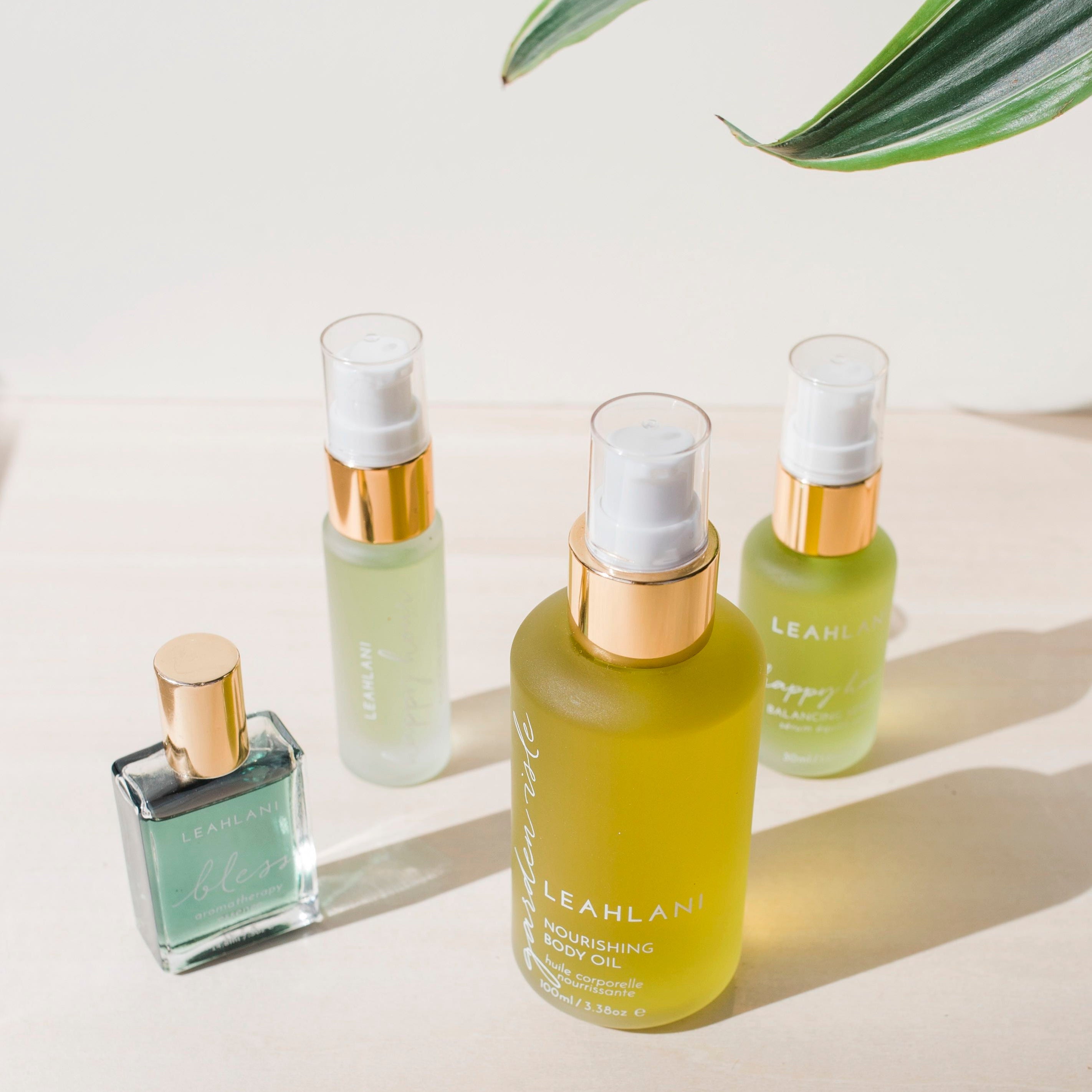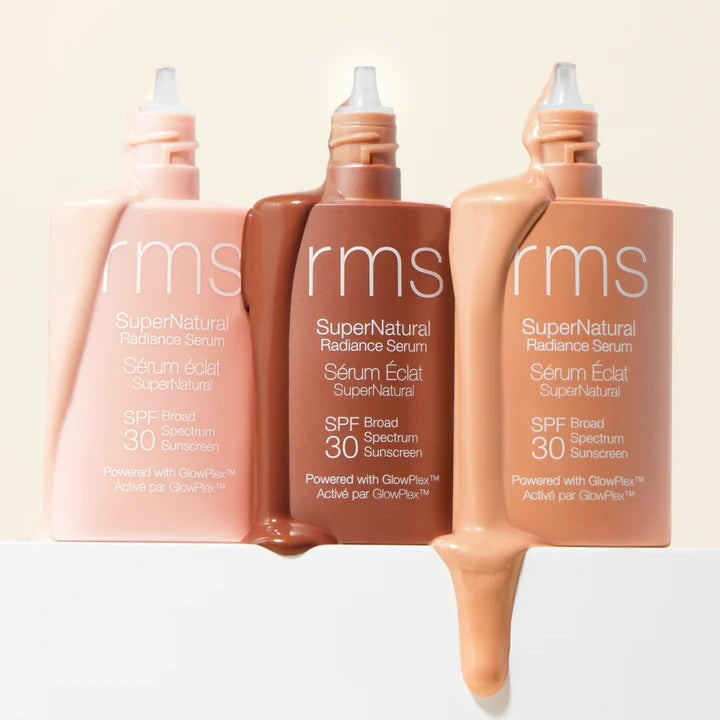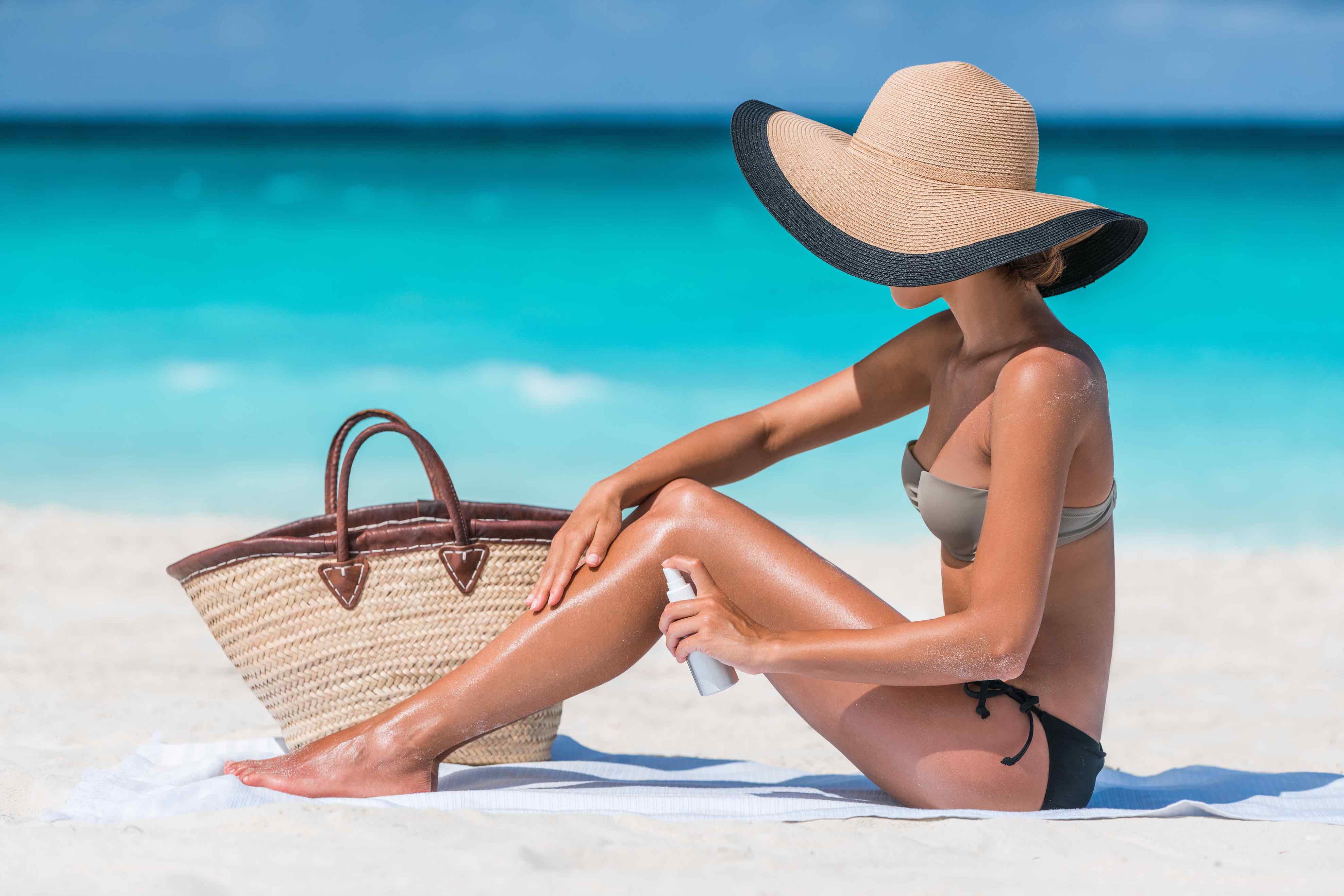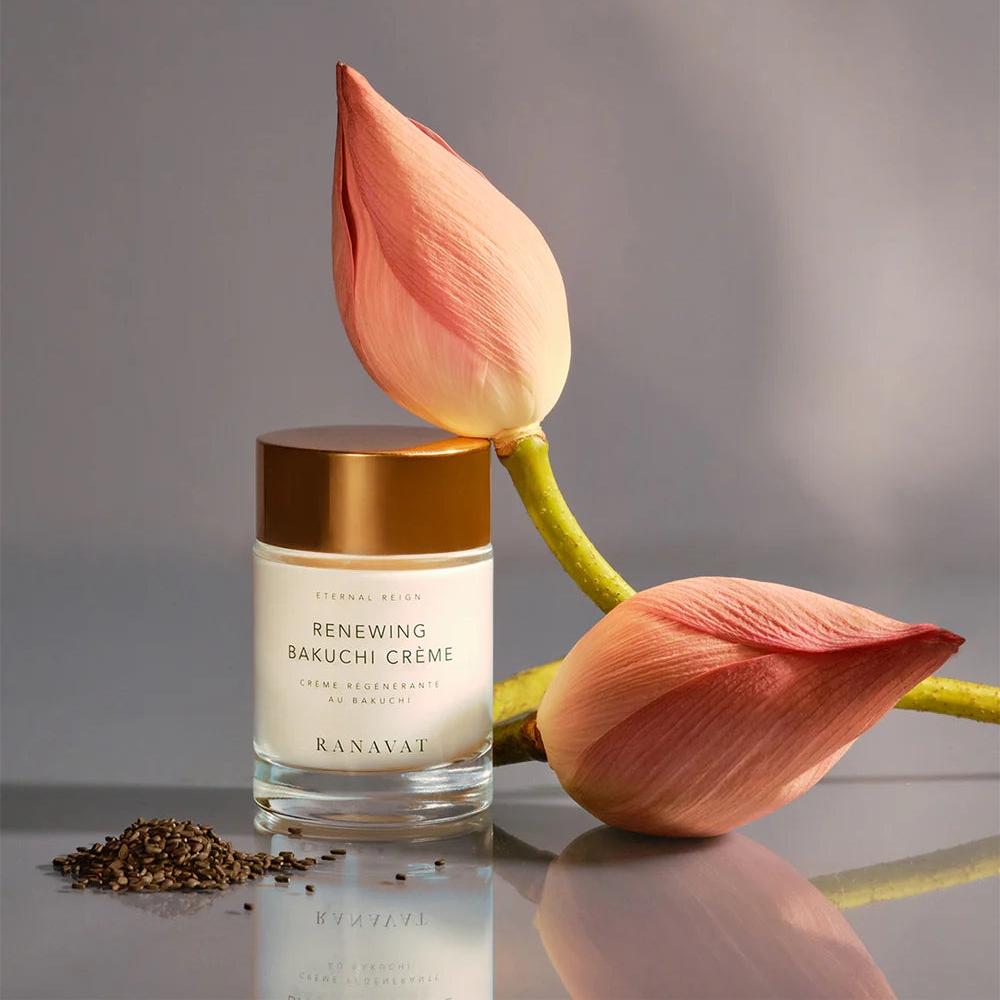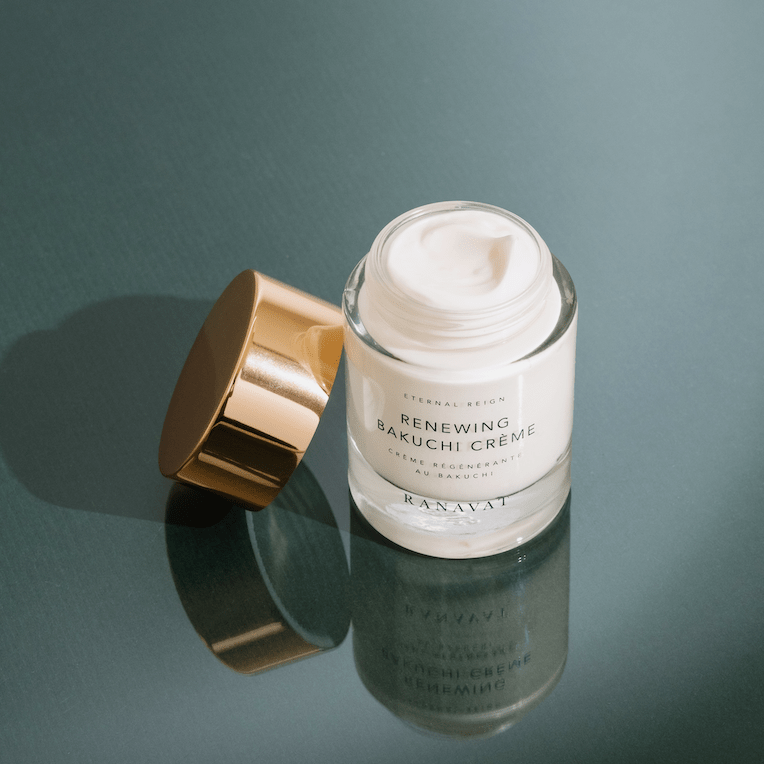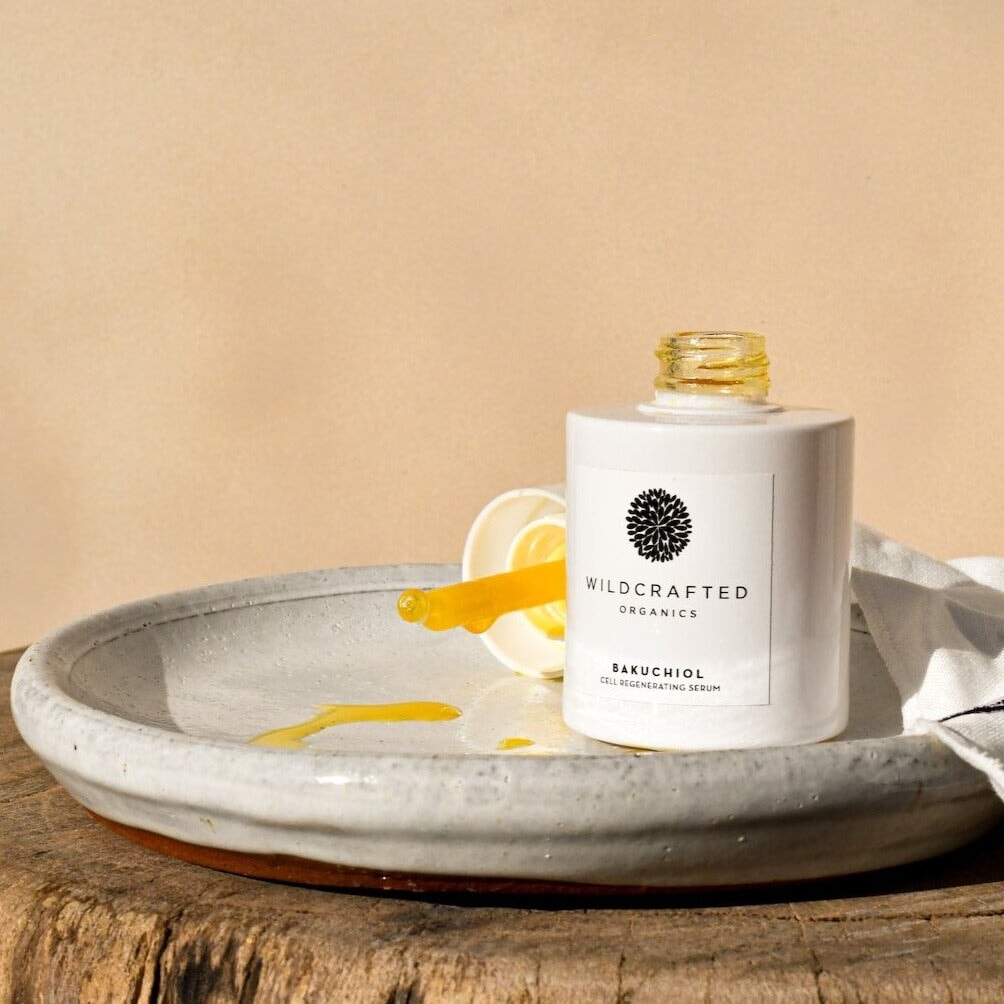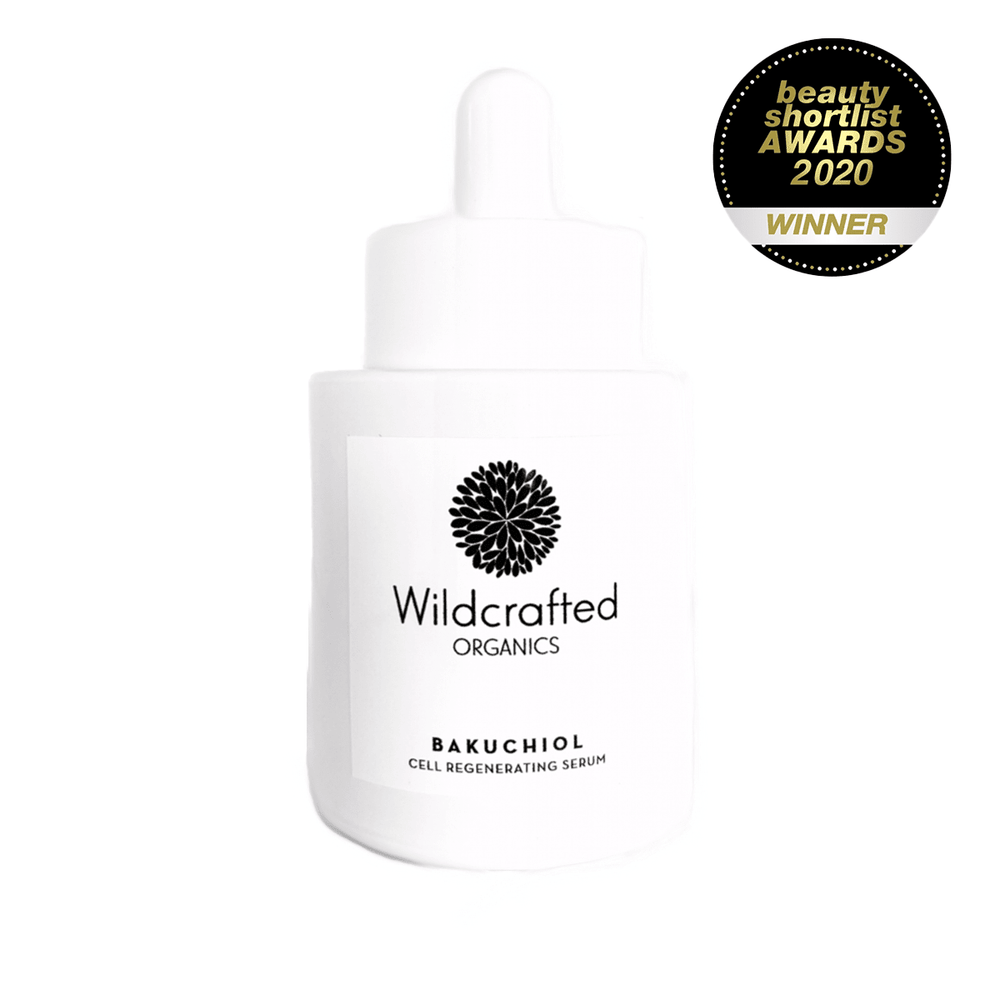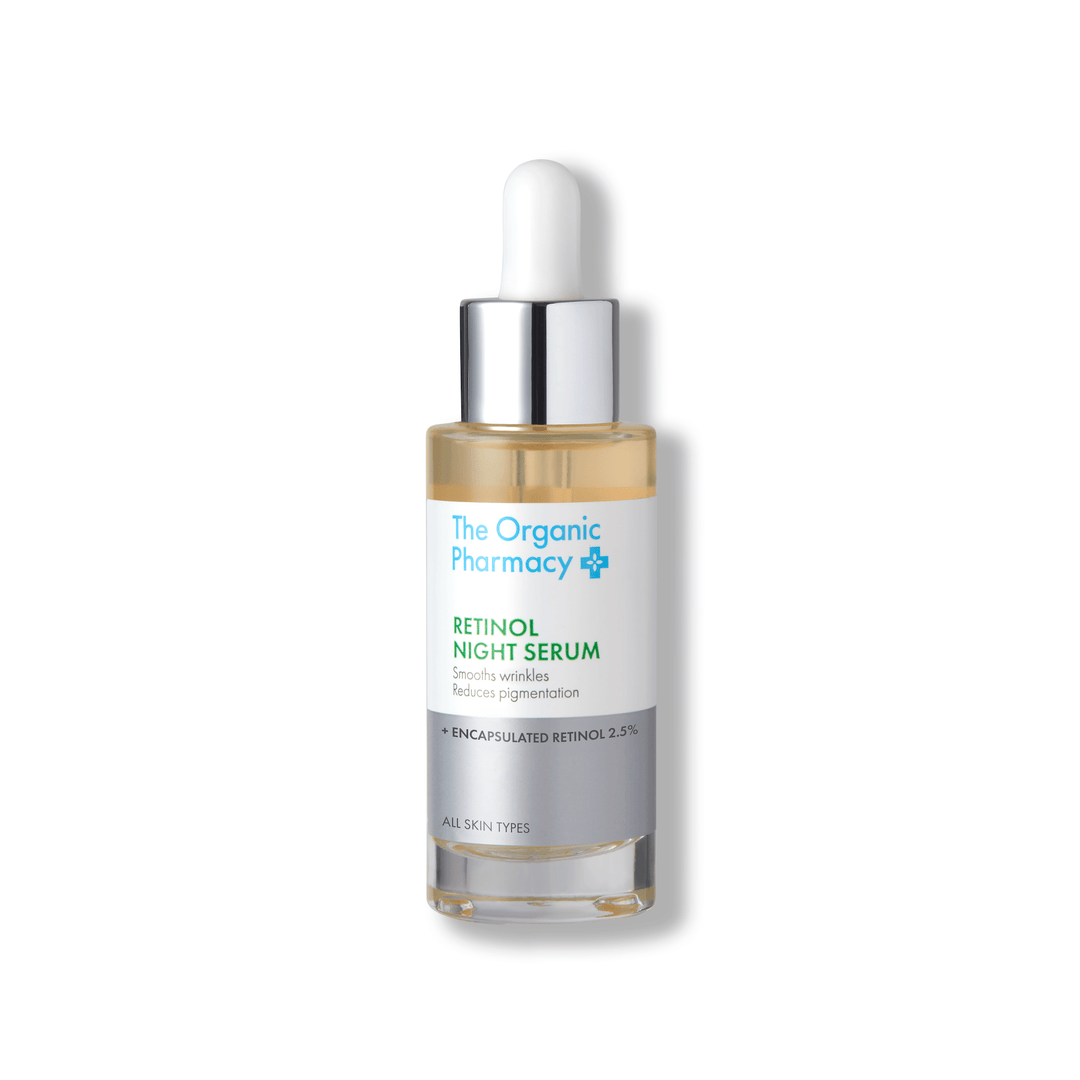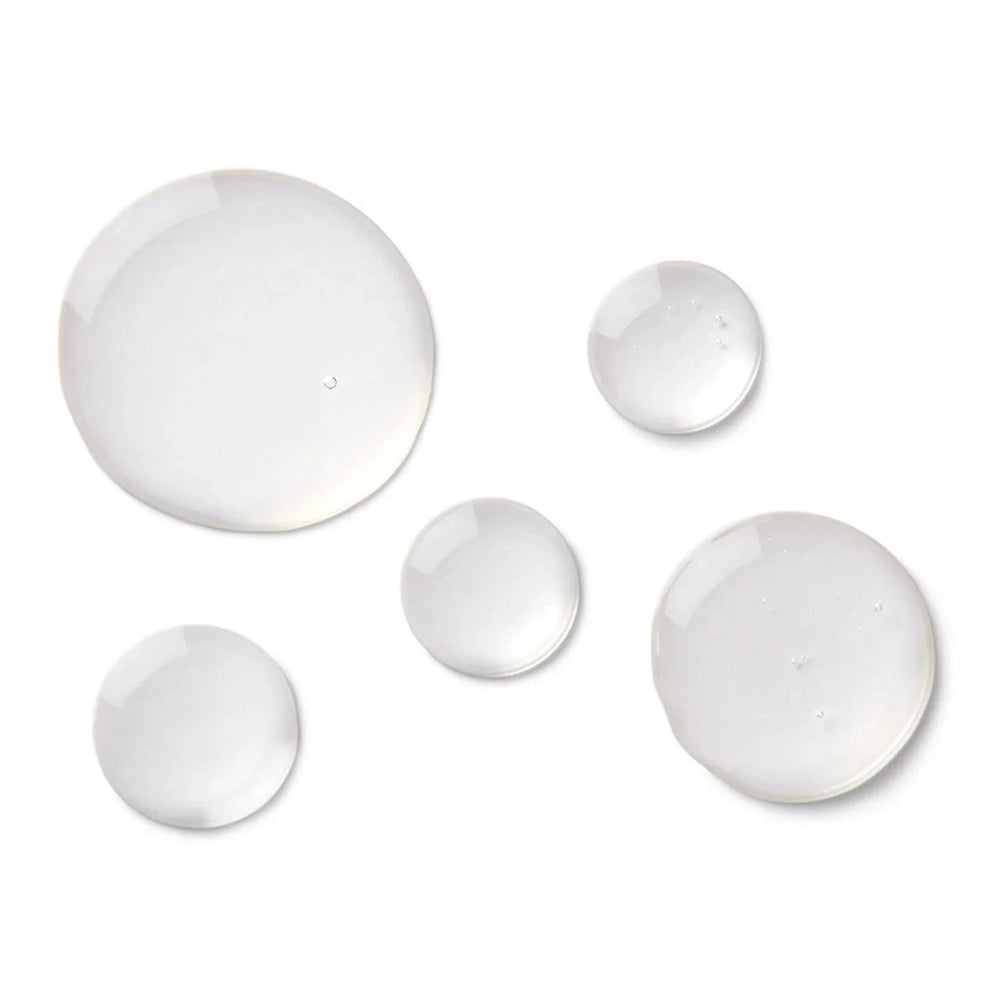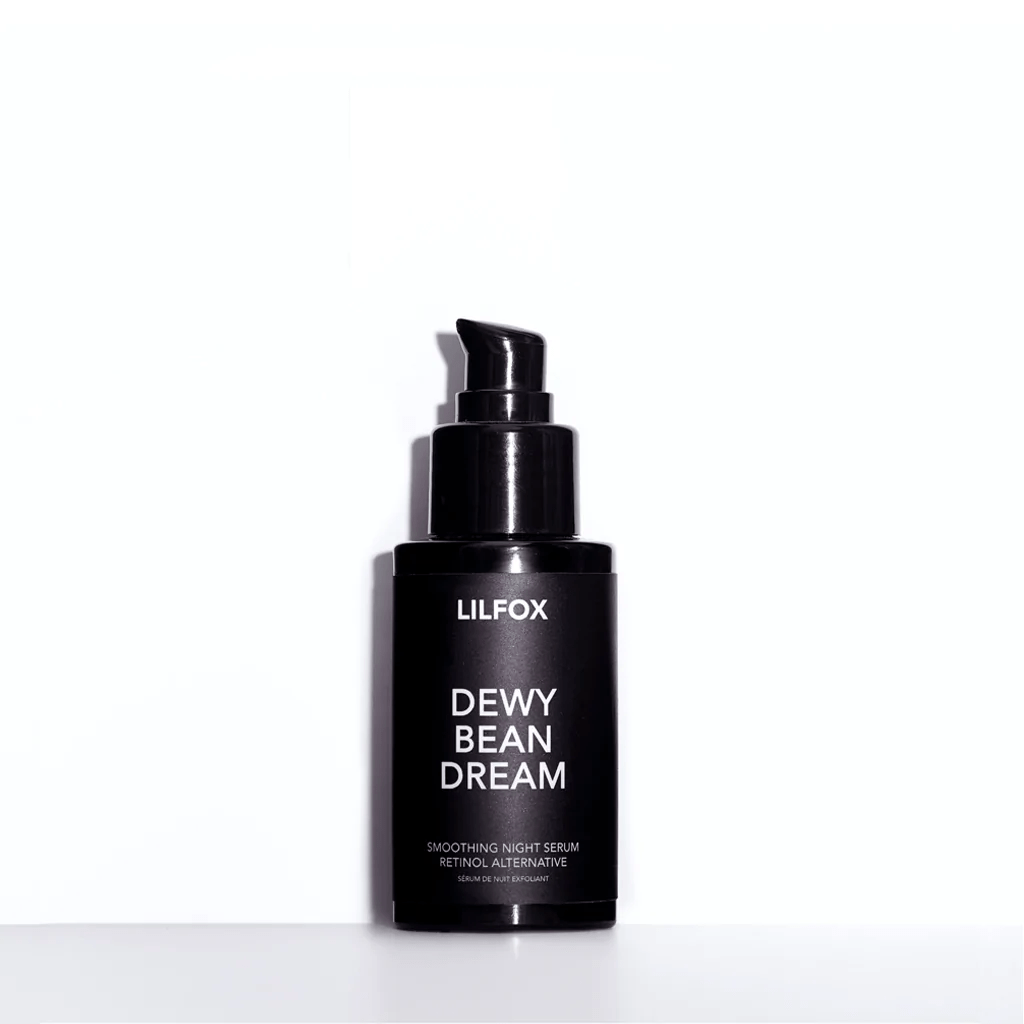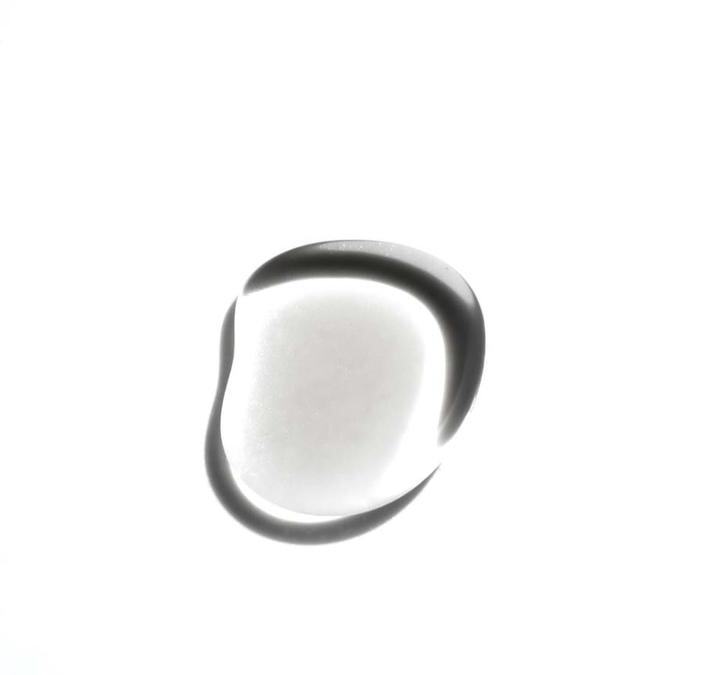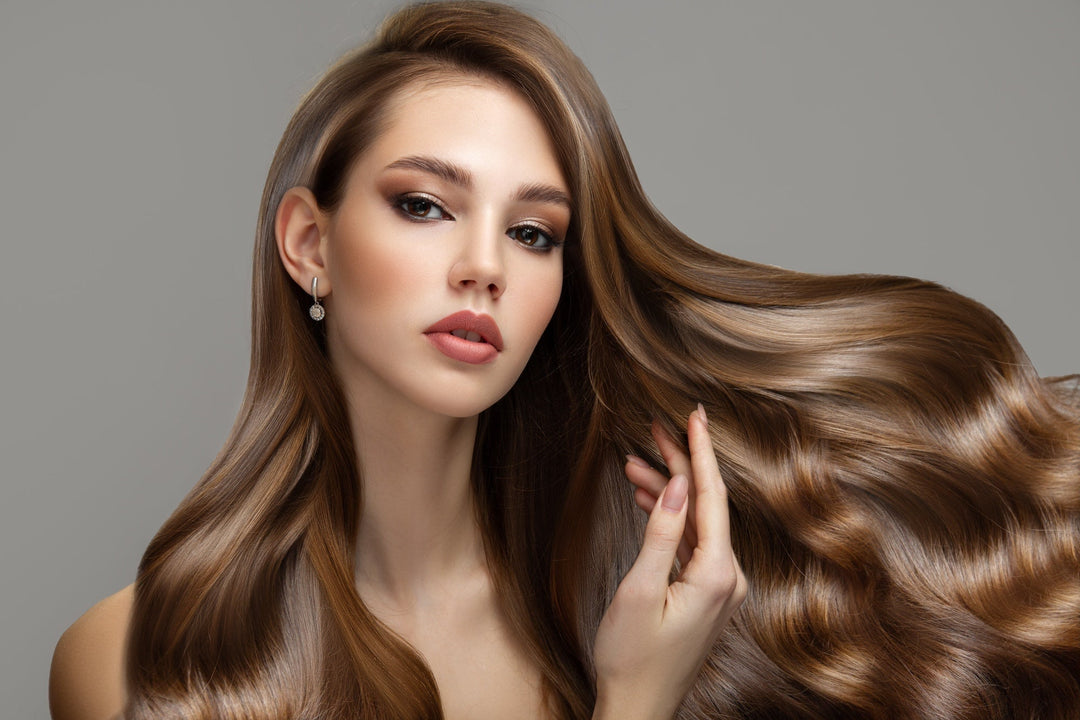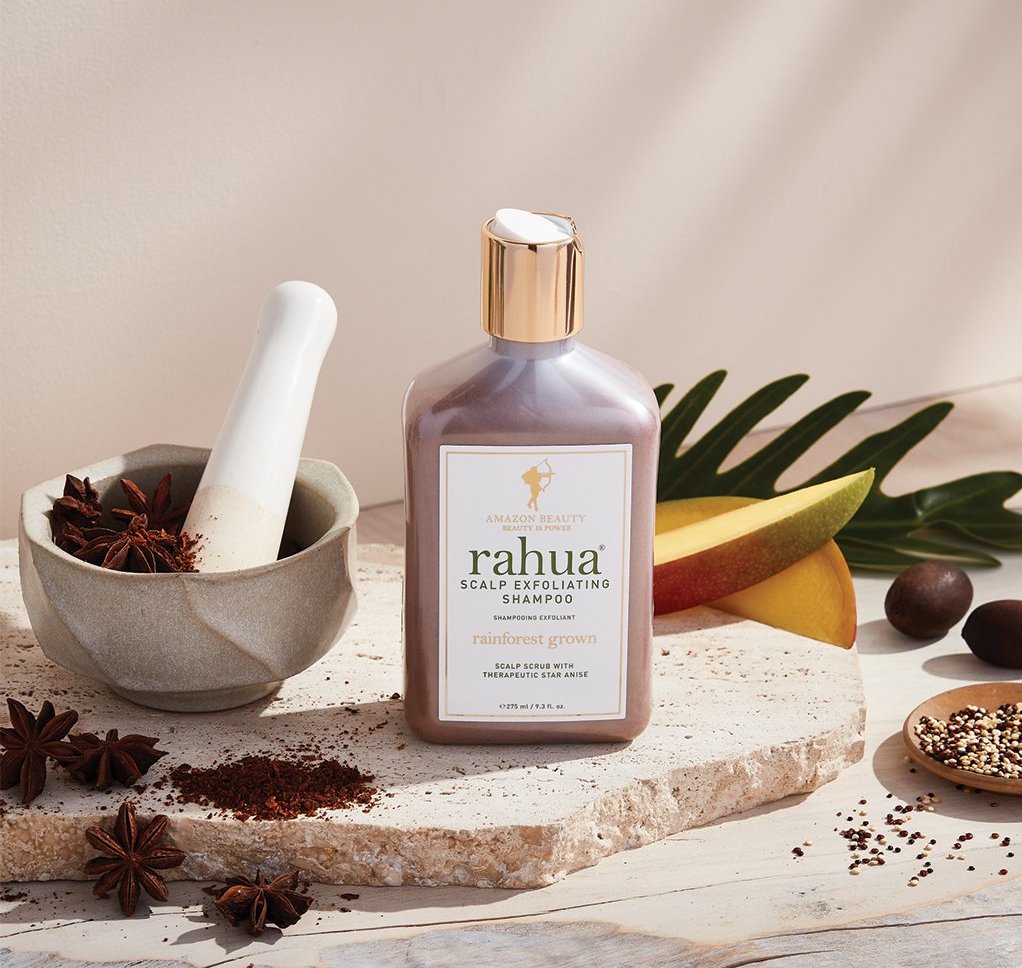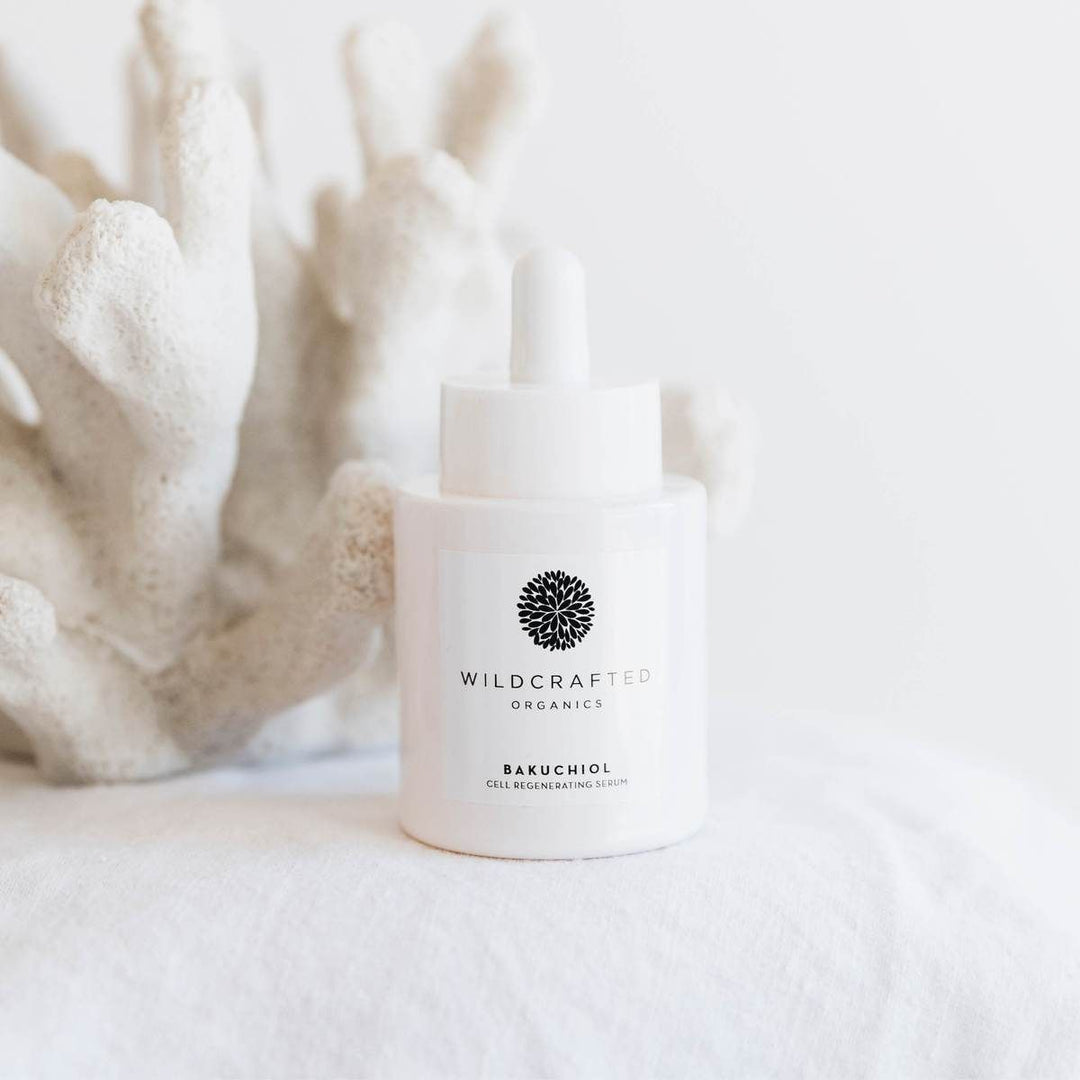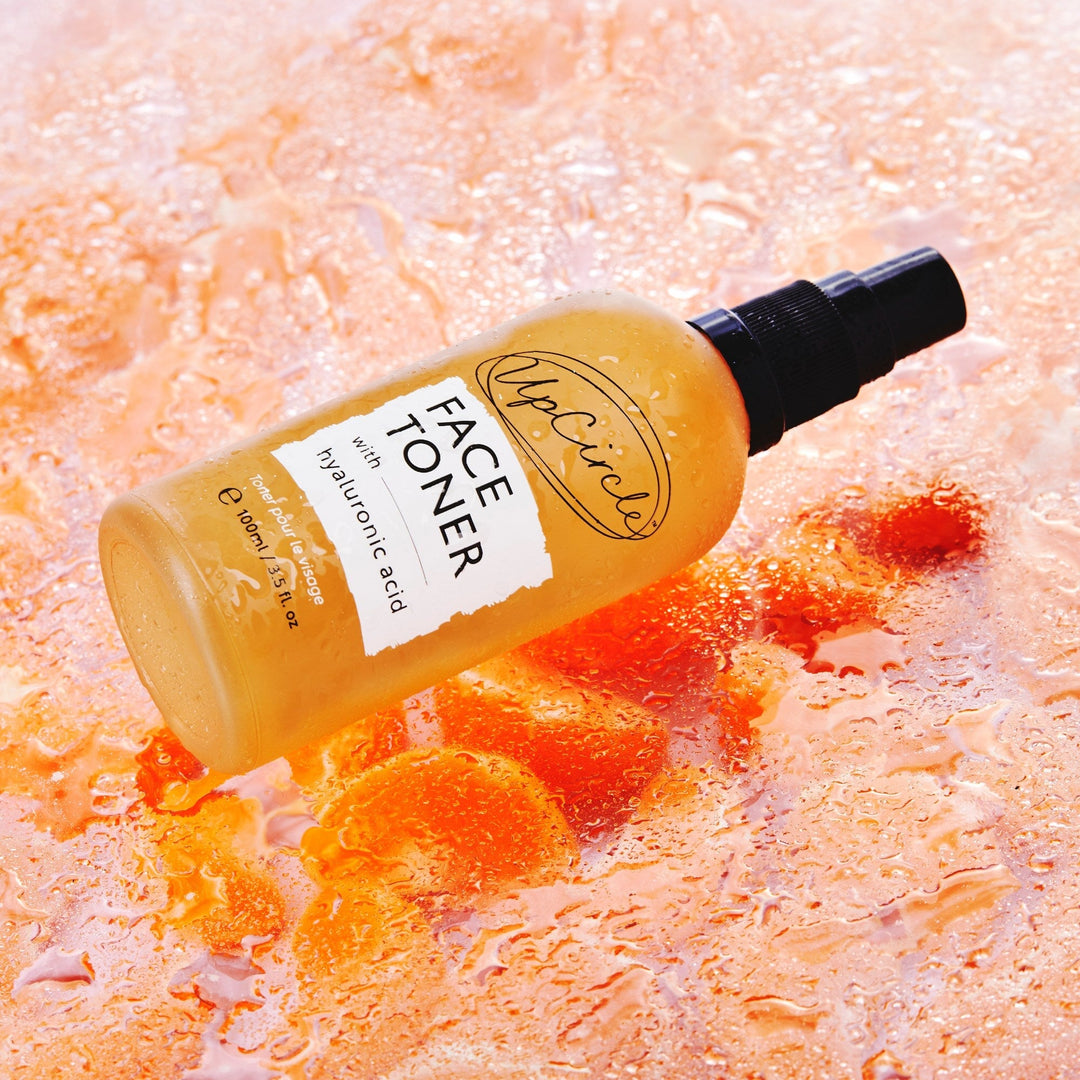Summertime is sun protection time!
When it comes to sun protection, our skin doesn't take lightly. Every careless hour of sun exposure takes its toll – either immediately with a painful sunburn, or years later with prematurely aged skin or even worse. Sun protection is therefore the most important anti-aging measure! Why is that? Because UVA rays can penetrate deep into unprotected skin and permanently destroy the collagen network – irreversibly. UVB rays, on the other hand, cause the classic sunburn: a painful redness that shows that the uppermost layers of the skin have been damaged by the sun's rays.

Tanned skin - the goal of many sun worshippers
What many of us love about sunbathing is that we get a supposedly healthy, beautiful tan on our skin. Whether tanned skin is beautiful or not has changed over the decades and with changing tastes. While it used to be a sign of high social status to display a noble pallor of the skin, today it is considered chic to have a light tan. Regardless of whether an individual finds tanned skin beautiful or not, exposing our skin to the sun without protection causes us to age faster and promotes pigment spots on the skin. This is caused by free radicals that cause stress to the skin and damage the collagen network, as well as overactive melanin production. Sun rays stimulate melanin production in the skin, which ensures the tan and thus the skin's natural UV protection. Incidentally, the reason for the less favorable effect is already contained in the word "protection": the skin feels attacked by UV radiation and tries to protect itself by producing melanin. Too much sun causes our melanocytes to become overactive, resulting in an accumulation of melanin, which then manifests as pigment spots. Experts refer to this as hyperpigmentation.

Sun protection is anti-aging and health protection together
Fortunately, it's now undisputed that sun protection factor is extremely important – for young and old! On the one hand, to protect the skin from disease and, on the other, as anti-aging protection. Nevertheless, there's still a lot of uncertainty surrounding sunscreen and sunscreen filters: What filters are there? What's the difference between mineral and chemical/organic sunscreen? What do I need to consider when applying it? Which sun protection factor is right for me?

Here, we'll clear things up a bit and provide you with some answers and important tips—and perhaps even a personal comment from our customer base: Some of you have even lain on the beach without sunscreen in the past—because you didn't know any better. But when it comes to sunscreen, better late than never! So: Read this article to the end, order a sunscreen that's right for you, ideally from our shop , and use it regularly!
There are basically two different types of filters that protect our skin against UVA and UVB rays:

Mineral sunscreen filters
Mineral filters are usually based on zinc oxide or titanium dioxide. The particles they contain reflect and scatter the sun's rays on the skin. They do not pass through the skin barrier and, unless nano-sized, do not penetrate the skin. For this reason, mineral filters are often recommended especially for the sensitive skin of children. They had, and sometimes still have, one tiny drawback: They sometimes leave a slight white film on the skin. Fortunately, innovative advances have been made in this area, so that high-quality mineral sunscreens are increasingly less likely to leave a white film.
Chemical/organic sunscreen filters
Chemical sunscreen filters protect the skin by absorbing UV radiation and converting it into heat. Since many of these filters are only active in a specific wavelength spectrum, meaning they only protect against UVA or UVB rays of different wavelengths, several types of filters must be combined. For full-spectrum protection, a chemical sunscreen always requires several different substances that act as UV filters. Some of these filters are harmless, while others are suspected of affecting our hormone balance or even promoting cancer. One example is octocrylene, which is not only said to be hormone-active but also extremely harmful to the environment. Our philosophy at North Glow is to cause no harm to our planet and all living things, including ourselves. That's why you'll only find products in our range that are not even suspected of being harmful in any way. Chemical/organic sunscreen filters that we consider to be good and completely safe include Diethylamino Hydroxybenzoyl Hexyl Benzoapte (absorbs UV-A rays from about 320 to 400 nm), Diethylhexyl Butamido Triazone (absorbs UV-B rays from about 280 to 320 nm) and Ethylhexyl Triazone (UV-B filter, absorbs UV-B rays from about 280 to 320 nm).

Which sunscreen is right for me?
Sun protection is mandatory whenever you go outside. No distinction is made between male and female skin here. Since male skin tends to be a bit thicker, you can perhaps be a little selective with skincare products here and there. The rule for sun protection is: one fits all. And not just in summer: The sun is still very strong in spring and autumn, and in winter at higher altitudes, you can also burn very easily if you underestimate the effect of UVA and UVB rays. By the way: The sun protection factor on sunscreen refers exclusively to protection against UVB rays – not UVA protection. It is therefore worth taking a close look and reading how the product protects against skin aging. Protection against UVA radiation is always stated on the packaging.

Whether mineral or chemical/organic UV filters, as long as the sunscreen's formulation is high-quality, you're on the safe side for your skin. For this reason, it's a good idea to buy your sunscreen from a supplier you trust. With mineral sunscreen, you should also make sure it doesn't contain nanoparticles: These can potentially cross the skin barrier and enter the bloodstream. But here's the all-clear: Nanoparticles must be labeled with (nano) in the ingredients list, so you'll recognize them immediately.
Mineral filters are often better tolerated because they don't penetrate the skin. This is also the reason why they are generally recommended for children's skin. With chemical/organic filters, it's a good idea to take a closer look at which filter substances are used in the formulation. This makes the selection a bit more complicated. However, just as every skin is different, so too is its sensitivity and "preference" for certain ingredients. The only thing that helps is experimenting.
Sun protection at NorthGlow : You will find this in our range

Since last year, we have built a very select range of sun protection products. Here you will find sun protection products with predominantly high-quality mineral and some organic filters. However, the latter, according to our research, only contains filter types that are safe. At North Glow, you will find sun protection products from the brands SeventyOne (Australia), Salt & Stone (Australia), Beachkind (Sweden), and About Suncare (Germany). Other high-quality skincare brands in our range also offer one or two sun protection products with SPF 30, such as SeventyOnePercent, Beachkind, and even RMS Beauty.
My 5 favorite sun protection tips for you:
- Make applying UV protection a regular part of your routine! It should be as much a part of your morning routine as brushing your teeth – your skin will thank you for a lifetime!
- Sunscreen should always be the last step in your skincare routine: Afterward, you shouldn't apply any more moisturizer, but you can of course still wear makeup.
- A good sunscreen filter offers the stated protection – but only if it's applied in the correct amount. So, don't skimp on the sunscreen!
- Please also consider your neck, ears, and body: Sun protection isn't just important for your face! Skin exposed to the sun—that is, skin not covered by clothing—should be protected with a sunscreen filter.
- My mom tip: Sunscreen is a must for children! However, applying sunscreen is usually right behind "washing your hair" and "spinach" on the popularity scale – and it's no different for my children. That's why I explain early on why sunscreen is important and, at the same time, take a little extra time to apply sunscreen. Many children also enjoy being distracted by a conversation or a story. This transforms it from a tedious, chore in the middle of the day into a relaxing moment in the morning routine.
